.jpg)
Moldovan tourism might work under new rules set in a bill that was approved in first reading in December, 2016. Though the authorities announced that they aimed to develop this sector, this document is criticized mainly by the representatives of inbound tourism, that is poorly developed. They signal, inter alia, that the variant of the bill voted in the first reading will worsen the situation of owners of guesthouses, which are few in number. They might face unequal conditions and will operate under the same rules like big hotels.
Stipulations of the bill
The Tourism Agency that is currently headed by Stanislav Rusu started discussions about amending the law on tourism organization and development in Moldova four years ago. In July 2016, the government approved a draft law that comprised some amendments and this document was voted in first reading several months ago by the Parliament. The authors insist that the amendments are necessary to adjust relevant legislation to international standards and local market requirements. Also, according to the attached briefing note to the bill, the authorities aim to create better conditions for owners of businesses in tourism and ensure better protection to customers.
For example, a new public institution will be set – Office of Tourism promotion, an entity that is subordinated to the Tourism Agency and will provide tourist information to the visitors. Centers for tourist information and tourism promotion will be established in each district. Similarly, they plan to use the Tourism Satellite Account - a platform aimed to collect and process all information related to the costs generated by the tourist consumption and other statistical data in this field.
Also, the tourist voucher and mandatory model contract for tourist services would be excluded. Instead, officials want to introduce new certification of tour guides instead of the certificate obtained from initial and continuing training institutions. Their knowledge and ability to organize trips in the country will be tested by a special commission, involving representatives of central authorities in tourism, of the Ministry of Culture, Academy of Sciences, educational institutions and relevant associations. Qualification document will be valid for five years. "Certification of the tour guides will increase their level of training and will improve the quality of services rendered by guides and ultimately will increase the number of tourists using the services of tour guides and improve the country's image as a tourist attraction", say the authors of the project. However, trips will be organized only on routes approved and certified by the Agency.
The bill also introduces the notion of "tourist accommodation", which will include all the facilities of accommodation, from large hotels to guesthouses and holiday homes. Each would have a functional certificate. Moreover, the new law could provide for sanctions for developing tourism activities by unskilled staff or in accommodations that do not own certificates of classification.
Tourism Agency representatives promise that by amending this law, citizens, economic units and the state will get more benefits. According to them, if these changes are implemented, tourism activity will boost the number of tourists and cashing. "Amendments aim at reducing the burden of the state on economic units in tourism, raising the quality of tourism services, promoting Moldova's image as a tourist destination, all of which contribute to increased cashing from tourism activity and tourism output in GDP", reads the briefing note of the bill.
The document also shows that the opinions of all relevant representatives, those who defend state interests and interests of the economic units and of the relevant NGOs were considered while working out the bill. Following several ongoing meetings and debates, the views of the participants in the discussions were different and some of them contradicted the heads of the Agency.
"The changes will seriously affect the situation in tourism"
Several organizations representing economic units in inbound tourism (targeting foreigners visiting our country - n.r.) criticized several changes. According to them, at present, the tourism industry in our country presents a serious imbalance, includes most services of outbound tourism, ie import of services for Moldovans’ trips abroad, while the inbound tourism, that produces added value for Moldovan economy and is exporter of services, is assumed by just 4% of travel agencies, producing less than 1% of national GDP. "Moldova ranks among the last in terms of tourism development, though our country has an attractive tourist heritage and an advantageous geographical position. The tourism industry is a sector with high growth potential and could serve a large contingent of local and foreign tourists on the territory of our country. Our country has registered up to 2.5 million tourists annually until 1990. In 2015, in Moldova there were reported about 100,000 tourists in accommodation and about 2.85 million foreign citizens crossed the state border. Only about 15,000 tourists visited our country in groups organized by national tour operators", reads a letter sent by the presidents of several touristic NGOs to Parliament Speaker, Andrian Candu. The signatory- organizations include the National Association for Inbound Tourism in Moldova (ANTRIM), National Association for Rural, Ecological and Cultural Tourism (ANTREC), National Center for Wine Tourism Promotion, Federation of Tourism Promotion in Moldova (FPTM) and others that set a platform for inbound tourism development.
They warned the Parliament Speaker that this bill would not profoundly change the branch management. "It will preserve and will worsen the current situation in tourism, it contravenes to the principles of reform and development of industry, of government policies on deregulation of business environment and reduction of controls on entrepreneurship and best international and regional practices", reads the letter.
Representatives of these organizations argue that this bill aims at deformed strengthening of the Tourism Agency. Specifically, if functions of control, accreditation and agent ascertaining of administrative violations are attributed (in addition to the tasks of developing and implementing policies in the field which the Agency is in charge now), this structure would become the only authority from the central public administration system with a high concentration of power, "which will keep unbalanced government and contravenes to international practices".
Authors of the letter point that the initiative to set the same requirements for both large hotels and guest houses in rural areas will affect inbound tourism. "Exaggerated lax requirements will severely affect small rural guesthouses and tourist service providers, which will be subject to the same conditions as big hotels, managed by professionals. This will discourage small entrepreneurs in rural areas", reads the letter.
Another deficiency is the licensing of travel agencies and operators in the field - " inappropriate and ineffective act, based on some rules that do not serve the public interest" - and the mandatory requirement that all employees hold certificates of initial training or professional development - "which lack added value for the relevant staff or in a survey, 2/3 of respondents assessed the quality of these trainings as low and poor."
Also, representatives of inbound tourism are against the idea to organize trips only on tourist routes authorized by the Tourism Agency. "This initiative will paralyze tourism activity, will inhibit creativity of tour operators and guides and will prevent fulfillment of wishes and interests of tourists", they say. They disagree with the obligation to certify guides by a special commission. "The industry announces an acute shortage of guide services, even if a number of guides in museums are untapped by the industry. According to best international practices, the guides who practice a free job based on own human competences- should be subject to authorization regime and single tax, as those who own patent of entrepreneur. Or the public interest to stimulate expansion of the job of guide is a strategic one, and the development of the tourism industry depends on it”, reads the document.
Signatories of the letter demand the Parliament Speaker not to approve the bill in final reading: "The project is an obsolete vision of regulation and control of tourism field , a discouraging signal for industry and its development partners."
Svetlana Lazar, chairperson of the National Association for Rural, Ecological and Cultural Tourism
The variant of the bill that was voted in the first reading might worsen the situation and the small entrepreneurs from the rural area will not be encouraged, they are doing hard on their own with little support from foreign donors. As soon as this law was passed in the first reading, I discussed with many members of our association and they said that if this bill is implemented- they will close their businesses. We hope that things will change following debates. We want to support small owners of tourism businesses because it is not fair for a country, even as small as ours to designate statistically only 26 guesthouses.
Emilian Dzugas, chairperson of the National Association for Inbound Tourism in Moldova
This project hampers inbound tourism development. Owners of guesthouses will face with difficulties. They will need authorizations or licenses for everything. People in the field will be trained by a particular entity. Where to get trained people with high education in Moldova? For example, who will train housewives in Butuceni to make pies? This project, in its current variant, is outdated and brings many obstacles. Owners of guesthouses need liberty to develop them and after they are set conditions, controls can be performed in future. As for outbound tourism, the bill provides more freedom.
The World Bank also speaks about the negative impact over tourism. In a letter sent to the Parliament Speaker in late January, Alexander Kremer, Country Manager for Moldova, argued that the bill contravenes several reforms recently initiated by the government in Chisinau, including reduction in the control bodies of the state and their institutional consolidation. "These amendments are contrary to reforms by introducing additional licenses to tourism service providers, travel agents, tour operators and individual guides (...) thus putting an additional and unjustified burden on industry. Also, the new legislation will define the Tourism Agency as an authority with control function over the private sector in the tourism industry, which contradicts the map of control institutions resulting from the Law on state control over business activity, by introducing double checks ", reads the document signed by the World Bank in Chisinau.
The US Agency for International Development, USAID, highlighted several shortcomings of the bill in parliamentary debates from March 1, 2017, by examples of good practice, in Armenia and Georgia.
On the other hand, Stanislav Rusu argues that Tourism Agency will have too many levers of control. "Already it has not. We obeyed the government policy of reducing the number of institutions with control. Therefore, any new law will not provide this. A working group was set in the Parliament with representatives from all sectors, including the opponents of this bill. Debates are held. There will be some amendments and completions to the bill. No one has reached a consensus, but we are in the final stage of debate. We will reach a compromise", said Stanislav Rusu.
The official claims that by these changes, the representatives of inbound tourism will benefit as well. "No need to talk by statements, but we should start some concrete changes. I can prove that these amendments and completions will lead inclusively to the development of the inbound tourism and the quality of services will improve ", said head of the Agency.
Representatives of large travel agencies and hotels require adoption of the bill in final reading
The new bill is backed by several tourism representatives, demanding adoption of the document in final reading. Voted by MPs in first reading on December 23, 2016, representatives of the associations of the tourism industry and a few owners of travel agencies, hotels and guides, signed a month later a statement on "the urgent need" to change the old law. Among other things, the signatories of the document emphasized that after the implementation of amendments, tourism agencies and operators in the sector will get rid of certain barriers in their work; will enhance the prestige and training of tourist guides and once they pass certification by a special committee; tourism statistics records will improve. However, in their view, the classification of the accommodation facilities will improve the quality of services provided by them, and the introduction of administrative sanctions will remove unfair competition in the field. The signatories of the declaration include directors of large travel agencies in the country, representatives of hotels Cosmos, Vila Verde and Nobil, controlled by businessman Vlad Plahotniuc.
Expertise of the National Anticorruption Center: „Contradictory and abusive norms around”
Though the majority of parliamentary committees backed the bill and proposed it for consideration and adoption in the Parliament's plenary, General Legal Division of the Legislative and the National Anticorruption Center (CNA) found shortcomings and ambiguities in some regulations. According to experts of CNA, some rules may lead to risks of corruption, others are contradictory and uneven, and sometimes abusive and with ambiguities. An anticorruption expert report recommends revision of all provisions related to the creation of the Office of Tourist Information and Promotion. "The author proposes set up of a new public institution - Office of Tourist Information and Promotion, but did not establish the defining aspects of this institution - the status, rights, duties, powers, method of appointment / selection of the director etc. The lack of clear and transparent mechanisms for regulation in the law proposed for amendments will end in establishing a dubious public institution that according to the author, requires 400,000 lei for staff and set-up. Functions, duties, structure of the Office should be clearly defined, to avoid further abuse. Also, there is the risk that those powers are already attributed to other public institutions", say experts of CNA. However, they believe that most of the arguments presented by the authors of the bill are convincing and recommended it for promotion.
This article has been produced as part of the “Journalists for Integrity in Public Service” campaign, carried out by the Center for Investigative Journalism with the support of the Good Governance Program of Soros Foundation Moldova. The donor does not influence the topic or content of the published investigations.
Textele de pe pagina web a Centrului de Investigații Jurnalistice www.anticoruptie.md sunt realizate de jurnaliști, cu respectarea normelor deontologice și sunt protejate de dreptul de autor. Preluarea textelor știrilor și a investigațiilor jurnalistice se realizează în limita maximă de 500 de semne. În mod obligatoriu, în cazul paginilor web (portaluri, agenții, instituţii media sau bloguri) trebuie indicat şi linkul direct la articolul preluat de pe www.anticoruptie.md în primul alineat, iar în cazul posturilor de radio și TV – se citează obligatoriu sursa.
Preluarea integrală a textelor se poate realiza doar în condiţiile unui acord prealabil semnat cu Centrul de Investigații Jurnalistice.
Donors:
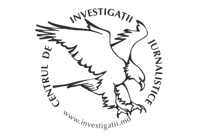
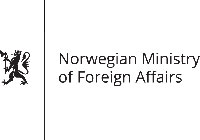

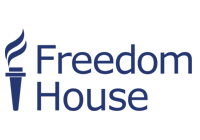
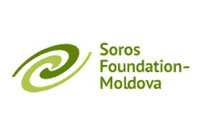
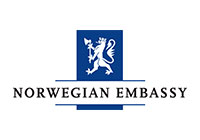
Partners:









